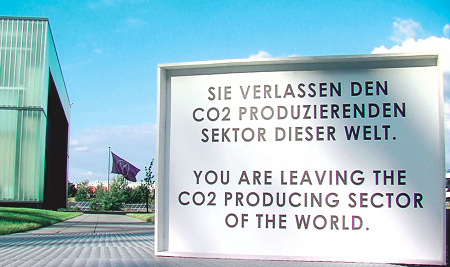“When I look at this [CO2] data, the trend is perfectly in line with a temperature increase of 6 degrees Celsius, which would have devastating consequences for the planet.” Fatih Birol, IEA chief economist
That’s one of the favourite quotes by Professor Kevin Anderson of Manchester University and the Tyndall Centre (personal website here) who, like James Hansen in the US and John Schellnhuber in Germany, is a leading climate scientist who speaks plainly about the dangers of global warming and the situation we’re in. Much of his important work seems to have been done with Alice Bows, now Bows-Larkin. In this piece I’ll refer to “he” or “they” depending on my perception of the source.
Real clothes for the emperor was the title of a talk Anderson gave to unionists in June 2013 (slides here).
Their basic point is that no real progress has been made since the Rio Summit in 1992 from which international action flowed through the agency of the UNFCCC and the IPCC. Policy makers in nations with ostensible targets seriously fudge the game so that economic growth is not inconvenienced.
Another favourite quote of theirs is:
“… dangerous climate change can only be avoided if economic growth is exchanged, at least temporarily [until low carbon energy supply is widespread], for a period of planned austerity within Annex 1 nations…” – Anderson and Bows, 2011
I’ll proceed by stating their main summary points in turn followed by a brief explanation. Continue reading Real clothes for the emperor

 Abbott, Hockey et al would have you believe that GM have made a decision to cease manufacturing in Australia. Kim Carr and Jay Weatherall have been saying that GM were willing to continue and had specified exactly what was required. My recall is that Weatherall said they wanted the Government to chip in $130 million. Carr
Abbott, Hockey et al would have you believe that GM have made a decision to cease manufacturing in Australia. Kim Carr and Jay Weatherall have been saying that GM were willing to continue and had specified exactly what was required. My recall is that Weatherall said they wanted the Government to chip in $130 million. Carr  These posts are intended to share information and ideas about climate change and hence act as a roundtable for readers to contribute items of interest. Again, I do not want to spend time in comments rehashing whether human activity causes climate change.
These posts are intended to share information and ideas about climate change and hence act as a roundtable for readers to contribute items of interest. Again, I do not want to spend time in comments rehashing whether human activity causes climate change.




 Terry at Saturday Salon
Terry at Saturday Salon